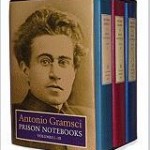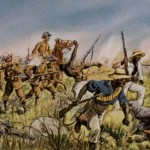by Mauro Pala – For Gramsci language plays a major role in developing a theory of social emancipation. Accordingly, language must be analyzed against the backdrop of external determination and in this context national cultures or the expressions of two fundamentally similar civilizations can be mutually translatable. The principle of translatability thus applies to the entire construction of Gramsci’s philosophy of praxis: translation becomes the necessary criterion of mediation between two cultures or world views and constitutes the means for gauging the multiple and ever changing faces of reality. In a certain sense, the practice of translation gives a measure of Gramsci’s project of absolute historicism. Gramsci, Language and Translation, the collection of essays edited by Peter Ives and Rocco Lacorte, sheds light on this Sardinian intellectual’s unique way of approaching language as a political issue and linguistic concepts as a means to analyse culture, seen as an ensemble of pivotal social factors.
Autore: tradurre
Review: Melancolia occidentale – essay by Luca Crescenzi
by Massimo Bonifazio – Luca Crescenzi’s essay Melancolia occidentale (Western Melancholy) provides a new interpretation of Thomas Mann’s novel Der Zauberberg (The Magic Mountain). In 2010 Crescenzi edited a new Italian version of the novel, translated by Renata Colorni with a new title, La montagna magica (The Magic Mountain). Crescenzi’s essay considers Mann’s novel in the light of the ancient tradition of melancholy (an impulse towards death pervading the whole of western culture), whose hypostasis is found in WWI. The entire novel is thus interpreted as the dream of a German soldier during a battle. Crescenzi also identifies several recurring elements in The Magic Mountain which he believes Mann adopted from Albrecht Dürer’s famous engraving Melencolia I.
Tradurre l’egemonia
A twice told tale | Un racconto narrato due volte
The Voices Within
by Daniele Petruccioli – Translating literature means translating voices. To construct their narrative all authors use a certain number of different attitudes towards language that involve lexis, syntax and rhythm. This happens not only for the mimetic construction of characters and in the particular case of the narrator, but also for the inner structuring of the text. The sum of all these attitudes forms what we call the voice of the author. Authors use different methods, conscious and unconscious, to construct their voices. What kind of techniques, tools and tricks does a translator use in order to recognize and recreate the different voices in a book? Is he/she justified in using his/her own personal memories, unconscious mind, idiolect and family sayings in approaching this task?
Post-colonial German authors: two autobiographies
by Elisa Leonzio – This paper aims to introduce Italian readers to the writings of colonial and post-colonial German-speaking authors, a chapter of German literature which for the most part is neglected by scholars both in Germany and abroad. After a brief introduction, the article explores the historical background of (post)colonial German literature, examining the colonial power of the Wilhelminian Empire and its rapid decline. A second part of the article is devoted to the language of propaganda used in the literature, reference works and political texts of the pre-colonial and colonial eras. The third and last section considers what is known as “colonial amnesia”, a phenomenon which affected both the GDR and FRG after World War II, and describes how memory was recovered thanks to the efforts of popular weekly magazines, newspapers and television programs in the GDR and to the publication, over the last seven years, of two autobiographies written by young German-Namibian women.
Hanno preso Pietro Paolo Fortress

TIRO LIBERO | di Marta Boneschi
A un certo punto dei Dieci giorni che sconvolsero il mondo in traduzione italiana, John Reed fa irrompere un messaggero, il quale annuncia: «Hanno preso Pietro Paolo Fortress!», e il lettore dovrebbe compiangere il poveretto che, ormai privato della libertà, sarà certo ammazzato dai perfidi bolscevichi.




